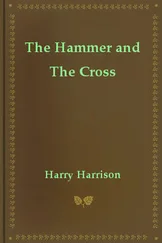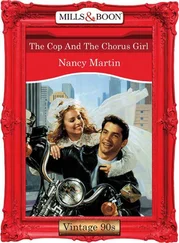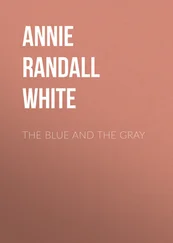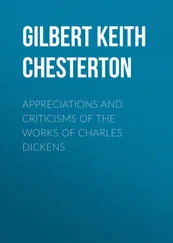Gilbert Chesterton - The Ball and the Cross
Здесь есть возможность читать онлайн «Gilbert Chesterton - The Ball and the Cross» весь текст электронной книги совершенно бесплатно (целиком полную версию без сокращений). В некоторых случаях можно слушать аудио, скачать через торрент в формате fb2 и присутствует краткое содержание. Жанр: Классическая проза, на английском языке. Описание произведения, (предисловие) а так же отзывы посетителей доступны на портале библиотеки ЛибКат.
- Название:The Ball and the Cross
- Автор:
- Жанр:
- Год:неизвестен
- ISBN:нет данных
- Рейтинг книги:5 / 5. Голосов: 1
-
Избранное:Добавить в избранное
- Отзывы:
-
Ваша оценка:
- 100
- 1
- 2
- 3
- 4
- 5
The Ball and the Cross: краткое содержание, описание и аннотация
Предлагаем к чтению аннотацию, описание, краткое содержание или предисловие (зависит от того, что написал сам автор книги «The Ball and the Cross»). Если вы не нашли необходимую информацию о книге — напишите в комментариях, мы постараемся отыскать её.
The Ball and the Cross — читать онлайн бесплатно полную книгу (весь текст) целиком
Ниже представлен текст книги, разбитый по страницам. Система сохранения места последней прочитанной страницы, позволяет с удобством читать онлайн бесплатно книгу «The Ball and the Cross», без необходимости каждый раз заново искать на чём Вы остановились. Поставьте закладку, и сможете в любой момент перейти на страницу, на которой закончили чтение.
Интервал:
Закладка:
The other did not answer.
Then after a swift silence that took them out across St. James’s Park, he said: “The people must be taught to obey; they must learn their own ignorance. And I am not sure,” he continued, turning his back on Evan and looking out of the prow of the ship into the darkness, “I am not sure that I agree with your little maxim about justice. Discipline for the whole society is surely more important than justice to an individual.”
Evan, who was also leaning over the edge, swung round with startling suddenness and stared at the other’s back.
“Discipline for society–” he repeated, very staccato, “more important– justice to individual?”
Then after a long silence he called out: “Who and what are you?”
“I am an angel,” said the white-robed figure, without turning round.
“You are not a Catholic,” said MacIan.
The other seemed to take no notice, but reverted to the main topic.
“In our armies up in heaven we learn to put a wholesome fear into subordinates.”
MacIan sat craning his neck forward with an extraordinary and unaccountable eagerness.
“Go on!” he cried, twisting and untwisting his long, bony fingers, “go on!”
“Besides,” continued he, in the prow, “you must allow for a certain high spirit and haughtiness in the superior type.”
“Go on!” said Evan, with burning eyes.
“Just as the sight of sin offends God,” said the unknown, “so does the sight of ugliness offend Apollo. The beautiful and princely must, of necessity, be impatient with the squalid and–”
“Why, you great fool!” cried MacIan, rising to the top of his tremendous stature, “did you think I would have doubted only for that rap with a sword? I know that noble orders have bad knights, that good knights have bad tempers, that the Church has rough priests and coarse cardinals; I have known it ever since I was born. You fool! you had only to say, ‘Yes, it is rather a shame,’ and I should have forgotten the affair. But I saw on your mouth the twitch of your infernal sophistry; I knew that something was wrong with you and your cathedrals. Something is wrong; everything is wrong. You are not an angel. That is not a church. It is not the rightful king who has come home.”
“That is unfortunate,” said the other, in a quiet but hard voice, “because you are going to see his Majesty.”
“No,” said MacIan, “I am going to jump over the side.”
“Do you desire death?”
“No,” said Evan, quite composedly, “I desire a miracle.”
“From whom do you ask it? To whom do you appeal?” said his companion, sternly. “You have betrayed the king, renounced his cross on the cathedral, and insulted an archangel.”
“I appeal to God,” said Evan, and sprang up and stood upon the edge of the swaying ship.
The being in the prow turned slowly round; he looked at Evan with eyes which were like two suns, and put his hand to his mouth just too late to hide an awful smile.
“And how do you know,” he said, “how do you know that I am not God?”
MacIan screamed. “Ah!” he cried. “Now I know who you really are. You are not God. You are not one of God’s angels. But you were once.”
The being’s hand dropped from his mouth and Evan dropped out of the car.
XVI. THE DREAM OF TURNBULL
Turnbull was walking rather rampantly up and down the garden on a gusty evening chewing his cigar and in that mood when every man suppresses an instinct to spit. He was not, as a rule, a man much acquainted with moods; and the storms and sunbursts of MacIan’s soul passed before him as an impressive but unmeaning panorama, like the anarchy of Highland scenery. Turnbull was one of those men in whom a continuous appetite and industry of the intellect leave the emotions very simple and steady. His heart was in the right place; but he was quite content to leave it there. It was his head that was his hobby. His mornings and evenings were marked not by impulses or thirsty desires, not by hope or by heart-break; they were filled with the fallacies he had detected, the problems he had made plain, the adverse theories he had wrestled with and thrown, the grand generalizations he had justified. But even the cheerful inner life of a logician may be upset by a lunatic asylum, to say nothing of whiffs of memory from a lady in Jersey, and the little red-bearded man on this windy evening was in a dangerous frame of mind.
Plain and positive as he was, the influence of earth and sky may have been greater on him than he imagined; and the weather that walked the world at that moment was as red and angry as Turnbull. Long strips and swirls of tattered and tawny cloud were dragged downward to the west exactly as torn red raiment would be dragged. And so strong and pitiless was the wind that it whipped away fragments of red-flowering bushes or of copper beech, and drove them also across the garden, a drift of red leaves, like the leaves of autumn, as in parody of the red and driven rags of cloud.
There was a sense in earth and heaven as of everything breaking up, and all the revolutionist in Turnbull rejoiced that it was breaking up. The trees were breaking up under the wind, even in the tall strength of their bloom: the clouds were breaking up and losing even their large heraldic shapes. Shards and shreds of copper cloud split off continually and floated by themselves, and for some reason the truculent eye of Turnbull was attracted to one of these careering cloudlets, which seemed to him to career in an exaggerated manner. Also it kept its shape, which is unusual with clouds shaken off; also its shape was of an odd sort.
Turnbull continued to stare at it, and in a little time occurred that crucial instant when a thing, however incredible, is accepted as a fact. The copper cloud was tumbling down towards the earth, like some gigantic leaf from the copper beeches. And as it came nearer it was evident, first, that it was not a cloud, and, second, that it was not itself of the colour of copper; only, being burnished like a mirror, it had reflected the red-brown colours of the burning clouds. As the thing whirled like a windswept leaf down towards the wall of the garden it was clear that it was some sort of air-ship made of metal, and slapping the air with big broad fins of steel. When it came about a hundred feet above the garden, a shaggy, lean figure leapt up in it, almost black against the bronze and scarlet of the west, and, flinging out a kind of hook or anchor, caught on to the green apple-tree just under the wall; and from that fixed holding ground the ship swung in the red tempest like a captive balloon.
While our friend stood frozen for an instant by his astonishment, the queer figure in the airy car tipped the vehicle almost upside down by leaping over the side of it, seemed to slide or drop down the rope like a monkey, and alighted (with impossible precision and placidity) seated on the edge of the wall, over which he kicked and dangled his legs as he grinned at Turnbull. The wind roared in the trees yet more ruinous and desolate, the red tails of the sunset were dragged downward like red dragons sucked down to death, and still on the top of the asylum wall sat the sinister figure with the grimace, swinging his feet in tune with the tempest; while above him, at the end of its tossing or tightened cord, the enormous iron air-ship floated as light and as little noticed as a baby’s balloon upon its string.
Turnbull’s first movement after sixty motionless seconds was to turn round and look at the large, luxuriant parallelogram of the garden and the long, low rectangular building beyond. There was not a soul or a stir of life within sight. And he had a quite meaningless sensation, as if there never really had been any one else there except he since the foundation of the world.
Читать дальшеИнтервал:
Закладка:
Похожие книги на «The Ball and the Cross»
Представляем Вашему вниманию похожие книги на «The Ball and the Cross» списком для выбора. Мы отобрали схожую по названию и смыслу литературу в надежде предоставить читателям больше вариантов отыскать новые, интересные, ещё непрочитанные произведения.
Обсуждение, отзывы о книге «The Ball and the Cross» и просто собственные мнения читателей. Оставьте ваши комментарии, напишите, что Вы думаете о произведении, его смысле или главных героях. Укажите что конкретно понравилось, а что нет, и почему Вы так считаете.









